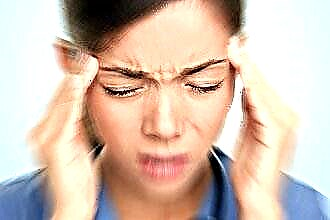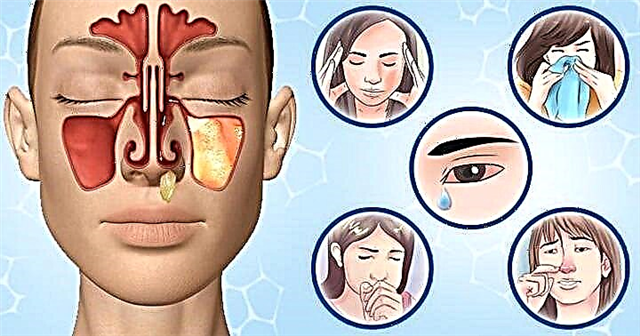Cochlear neuritis is an inflammation of the auditory nerve of the ear, symptoms and treatment with folk remedies, as well as with traditional medicine, are relatively well studied by doctors today. It is also called cochlear because it affects the channel that transmits impulses to the brain. According to statistics, most often the disease affects men aged 60 and over, who are not inclined to go to the hospital again.
Causes of occurrence
 Cochlear neuritis is a polyetiological pathology. Signs of the disease can manifest themselves under the influence of a number of factors:
Cochlear neuritis is a polyetiological pathology. Signs of the disease can manifest themselves under the influence of a number of factors:
- Infection due to ailments of the neck and head organs (ARVI, influenza, rubella, meningitis, typhus and typhoid fever, mumps, brucellosis).
- Poisoning with drugs, alcohol, tobacco. The influence of industrial chemicals and compounds, such as phosphorus, mercury, lead, gasoline, dyes, is possible.
- Traumatic brain injury, accompanied by capillary hemorrhage, edema and circulatory disorders. Fractures of the base of the skull are especially dangerous, which indicate vascular disorders and damage to the fibers of the NA.
- Costs of professional activity (work with noisy equipment in workshops, shooting, vibration sickness).
- Congenital and inherited pathologies.
- Age. After the age of sixty, age-related changes develop under the influence of atherosclerosis, increased thrombus formation, and hypertension.
Also, the disease is provoked by tumors, allergies, stroke, syphilis, barotrauma, otosclerosis.
Symptoms
Acute and chronic neuritis of the auditory nerve, the treatment of which is somewhat different, are the main forms of the disease - inflammation of the ear nerve. Diseases are one - and two-sided.
The acute form manifests itself suddenly, without any preconditions and develops rapidly, sometimes within 2-3 days or even several hours. Its main features:
- hearing impairment, which is progressive and can range from mild impairment to complete deafness (mainly, the perception of high frequency sounds worsens);
- persistent noise and ringing in the ears, which is absent only with complete deafness;
- possible severe dizziness and nausea in people with disorders of the vestibular apparatus;
- lack of pain and noticeable signs of the inflammatory process.
Periods of exacerbation and remission are characterized by a chronic form of the disease, the symptoms of which are manifested in this way:
 neuralgia - pain in the ears due to mechanical damage, rolls in attacks;
neuralgia - pain in the ears due to mechanical damage, rolls in attacks;- nausea, dizziness, pallor, weakness, headache - if the cause of the disease is intoxication;
- dizziness, staggering when walking due to inflammation of the cochlea;
- headache, "flies before the eyes", hypertension - blood vessels of the brain are insufficiently provided with blood;
- general malaise, fever, runny nose, cough indicate the addition of ARVI.
Diagnostics
To determine the disease and make an adequate decision on how to treat neuritis of the cochlear auditory nerve, the symptoms of which are not clearly expressed, an in-depth diagnosis is carried out.
- otoscopy (examination of the ear using special equipment);
- talking with the patient about the previous condition and the presence of symptoms;
- audiometry (determination of the perception of sounds of different frequencies);
- tympanometry (study of the mobility of small internal bones and tympanic membrane using air pressure);
- Rennes test, Weber test (study of vibration sensitivity and sound conductivity using a tuning fork);
- X-ray, computed tomography, MRI, ultrasound of the neck vessels, blood and urine tests, microbiological studies.
Otoscopy usually does not show any pathologies, a decrease in sound perception is most often detected using a tuning fork.
Traditional therapy
In case of acute inflammation of the auditory nerve in the ear, treatment should be started urgently and carried out in a hospital in the otolaryngology department in order to avoid irreversible changes (death of NS cells). In this case, the following are assigned:
- drugs to activate blood circulation in the brain (cavinton);
- diuretics (hypothiazide);
- means for improving metabolism (cocarboxylase);
- anticonvulsants (No-Shpa);
- detoxification of the body (hemodez).
Damage indicative of the chronic nature of the disease is almost impossible to cure completely. The patient's hearing is monitored, if it is stable for a long period, therapy is not carried out at all.
Treatment of a disease caused by intoxication is a complex and lengthy process, including:
- the use of antidotes - special substances that are able to bind harmful substances and remove them from the body;
- symptomatic therapy for individual manifestations of poisoning with a particular substance;
- non-drug methods (balneotherapy, mud therapy, mineral baths).
If neuritis of the ear occurs, the symptoms of which indicate acute poisoning, therapy should be carried out immediately. At the same time, the ambulance team injects antidotes intravenously, relieves the most severe signs of intoxication, in the event of a state of clinical death, carries out resuscitation measures (artificial ventilation of the lungs, chest compressions).
If, as a result of a skull injury, the auditory nerve is damaged, the symptoms confirm this, then the therapy is carried out in a hospital. The main task in this case is the elimination of the traumatic brain injury itself. ECHO-encephalography, radiography, examination by specialized specialists (ophthalmologist, neuropathologist) are mandatory. In addition, doctors prescribe:
- diuretics to improve the outflow of fluid from the cranial cavities and relieve swelling in them;
- pain relievers and anticonvulsants;
- medicines to improve blood flow in the vessels of the brain.
After the patient's condition has improved, mineral and vitamin complexes and biologically active substances are prescribed as one of the methods of prevention.
In the case of a professional cause of the development of auditory nerve neuritis, what it is, it is far from immediately possible to understand, since a person gets used to changes in the body associated with the peculiarities of work. At the same time, a change of place of work for a more favorable one is simply necessary. Increased noise and vibration will only worsen the condition. As a therapy, they are prescribed:
- Dietary supplements and biostimulants to increase the body's resistance to adverse conditions;
 vitamins to improve metabolism in the nervous system;
vitamins to improve metabolism in the nervous system;- electrophoresis of the cranial region, which improves the absorption of medicinal substances;
- magnetotherapy;
- acupuncture;
- spa treatment (radon and mud baths).
The patient is registered with an audiologist and undergoes therapy courses twice a year. In case of hearing loss under the influence of occupational hazards, hearing aids are performed.
Chronic disease caused by age-related changes is difficult to treat.
Therapy is reduced to lifelong use of drugs that promote the longest possible preservation of hearing or slow down its deterioration. Their action is aimed at:
- decrease in blood clotting (counteract thrombus formation);
- a decrease in blood cholesterol levels (with atherosclerosis);
- lowering blood pressure;
- improving blood circulation in the vessels of the brain for the delivery of nutrients and oxygen;
- increasing the functionality of brain cells.
Spa treatments, physiotherapy and vitamins are also recommended.
Folk ways
Treatment of acoustic neuritis with alternative methods is an addition to traditional therapy. It is used as an auxiliary tool, as a rule, to remove the latent inflammatory process and increase immunity.
- Thyme herb (4 tablespoons), pour boiling water over and wrap in cheesecloth. Apply hot to the ear for 10 minutes. Duration - 10 days.
- Shilajit (0.2 g tablets) should be taken on an empty stomach for 10 days. In parallel with this, compresses are made from a 10% solution of mummy. There are 3 courses with 10-day breaks.
- Calendula flowers, hawthorn fruits (1 part each), zamanikha, Rhodiola rosea root, string and safflower leuzeus (2 parts each), brown rosehip (3 parts) are mixed. One tablespoon of the mixture is poured with boiling water. The infusion is taken three times a day, 70 ml.
Hearing recovery and prevention
When hearing loss or deterioration to a level that interferes with normal functioning, consideration is given to how to improve hearing and restore the auditory nerve. For this, special technical means are used:
- A special device for sound amplification (behind-the-ear or in-the-ear) is installed and adjusted by a computer program based on the results of audiometry.
- Cochlear implantation is offered to patients for whom such a device is ineffective. During the operation, electrodes are placed in the cochlea, a receiver under the skin, a speech processor (microphone, microprocessor and transmitter) on the hair or scalp.
Prevention of the disease consists in timely treatment of ENT organs, non-use of ototoxic drugs, protection of hearing organs and audiometry twice a year for workers in hazardous industries, wearing a headdress in the cold, taking vitamins in autumn and spring, as well as maintaining a healthy lifestyle.

 neuralgia - pain in the ears due to mechanical damage, rolls in attacks;
neuralgia - pain in the ears due to mechanical damage, rolls in attacks; vitamins to improve metabolism in the nervous system;
vitamins to improve metabolism in the nervous system;

